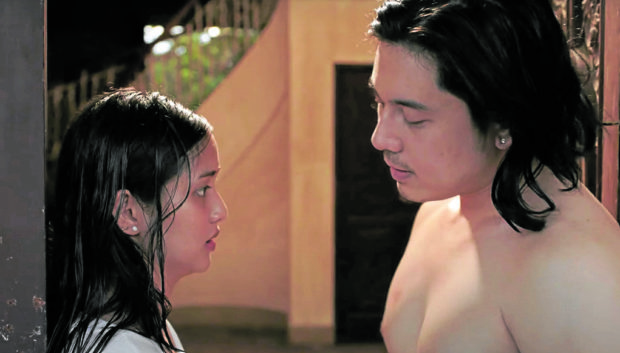“It’s harder to be a woman than a man; that’s the kind of struggle I want to show in the movie,” declared Antoinette Jadaone during the virtual Q&A session for her latest film, “Fan Girl,” at the ongoing 2020 Tokyo International Film Festival (TIFF) in Japan.
The Filipino filmmaker was asked why she chose to make a movie about a fangirl and not about a fanboy. “I want a coming-of-age story of a girl really wanting to be a woman so soon. This story resonates more with me than that of a boy turning into a man,” she explained further.
“Fan Girl” is part of the “Tokyo Premiere 2020” (main) section of the annual Japanese film fete, which runs until Nov. 9.
Jadaone, as well as lead cast members Paulo Avelino and Charlie Dizon, attended the hourlong session titled “TIFF Talk Salon” on Nov. 6, 12 a.m. (Manila time). This was held after a screening of “Fan Girl” at the Roppongi Hills Toho Cinemas, the film fest’s official venue.
TIFF festival programmer Kenji Ishizaka, who served as the Q&A moderator, announced that “Fan Girl” has received the most number of comments and questions so far since the nightly “TIFF Talk Salon” session began on Nov. 1.
“Fan Girl” follows the story of a very eager fan, named Jane (Dizon), who sneaks into the house of her idol (Paulo Avelino) and sees the horrifying truth.
Jadaone was also asked how she thought the Filipino audience would react to the film, especially since it contains scenes that feature the teenage heroine smoking, drinking alcohol and having premarital sex, something which the Japanese mainstream audience would already consider “controversial.”
“I guess this film is indeed controversial in that sense,” said Jadaone, also explaining that the Philippines has a government agency tasked to rate every film for public exhibition, referring to the Movie and Television Review and Classification Board (MTRCB).
Jadaone added: “It’s high time for us to tackle topics like this. If there’s a chance to talk about it, then storytellers must be brave enough to discuss it. Otherwise, it will be something that happens around us but we don’t care much about. That’s what filmmakers and storytellers do: Talk about issues that nobody dares talk about.”
Avelino received a lot of questions from the Japanese audience at the cinema, too, Ishizaka said. Among them was whether, as a celebrity, he would sometimes feel the need to escape from stardom and lead a quiet life. To this, Avelino answered: “For most celebrities, there’s always a need to escape and find ‘reality,’ especially for those of us who would sometimes get too ‘lost’ in portraying a particular role. For example, if you do a TV show that lasts from four months to a year or longer, you can get ‘lost’ in the character you portray. You just have to constantly find that balance and that part of you that will ground you or bring you back to reality.”
Dizon, meanwhile, was asked how she prepared for her character, especially since her display of “the lust and sexual desire of a teenage girl is almost sensational.”
“We attended acting workshops and did immersions in the place where Jane lives. I also had an acting coach on set,” Dizon replied. “I’m also not sure where [those feelings came from]. When we were shooting the scene, I just lived the moment. I thought it was needed in the scene.
“I did have hesitations before we began shooting,” she added. “I was actually surprised when I read about that particular scene in the script. When we were doing it, I just did my best so it will be over and done with.”
“It’s OK, Charlie. You can tell everyone you love me, that’s why,” Avelino interjected. To which, Charlie replied: “Yes, luckily, my partner was The Paulo Avelino!”
Jadaone was also asked what made her decide to cast Dizon as the fangirl. The director said casting had been tough because over 680 girls tried out for the role. She added that she had already chosen another actor, who unfortunately had problems with her talent contract and had to back out.
“I had to do another set of auditions, and that was when Charlie got in. She had a different kind of aura—it’s probably the way she walked into the room or the way she said her lines, which was different from the other girls who walked in. We already knew that we found our fangirl the moment we saw her,” Jadaone recalled.
Dizon, on the other hand, said the tryouts had been a blur to her. “It happened so fast, so sudden. I found out I got the part on the day of the auditions. This is my first lead role. This is really a big deal for me.” INQ
